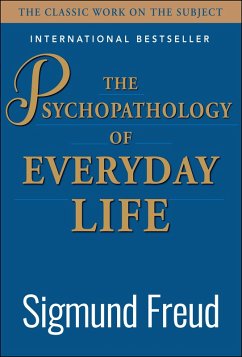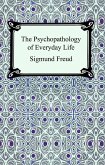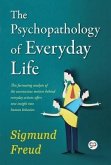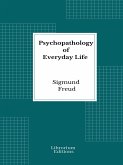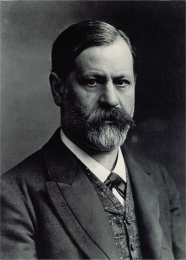Psychopathology of Everyday Life remains one of Freud's most widely read books, full of anecdotal accounts and free from jargon and technical terminology. Through a series of case histories, some no longer than a few lines long, Freud explores how it is that normal people make slips of speech, writing, reading and remembering in their everyday life, and reveals what it is that they betray about the existence of a sub-text or subliminal motive to our conscious actions.
Dieser Download kann aus rechtlichen Gründen nur mit Rechnungsadresse in A, D ausgeliefert werden.

